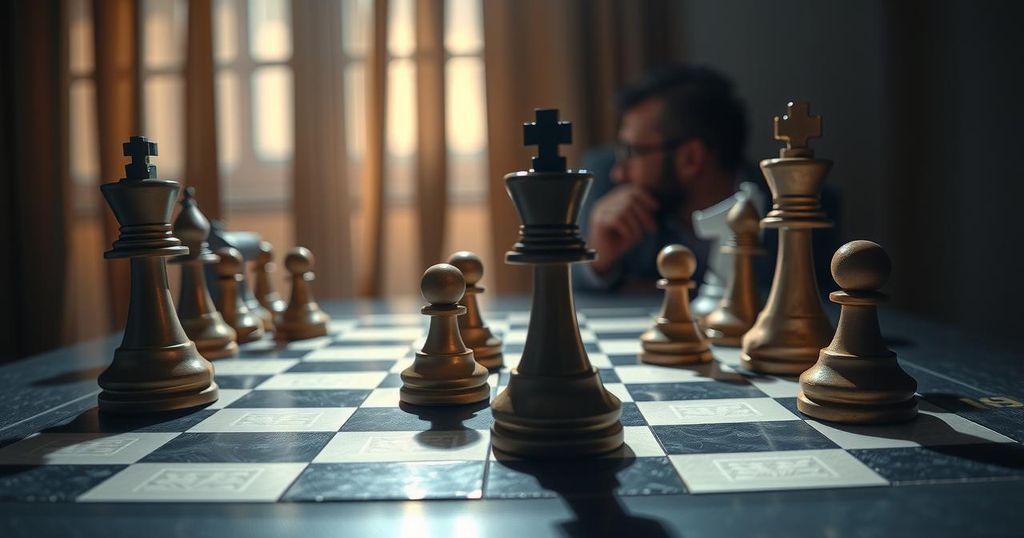Kim Jong Un’s Strategic Calculations After Troop Withdrawals in Ukraine

North Korean troops previously helped Russia in Ukraine but have since retreated following heavy casualties. Analysts predict Kim Jong Un may align closer with Putin, while also potentially reassessing relations with China and the U.S. Per experts, continued military and economic support for Russia is likely as North Korea prepares to re-engage in the conflict with a better-prepared force.
In recent months, North Korean troops were deployed to assist Russia in the conflict against Ukraine in the Kursk region. However, their withdrawal from combat raises questions about Kim Jong Un’s next strategies. Analysts predict Kim will strengthen ties with Russian President Vladimir Putin, while also potentially reassessing relations with Chinese leader Xi Jinping. There’s a likelihood of North Korean forces returning to combat after regrouping and retraining following heavy casualties.
Continued support for Russia seems paramount for North Korea, as they maintain a vested interest in helping with Moscow’s ongoing military efforts. Experts, like Bryden Spurling from the Rand Corporation, note that North Korea assesses scant risk in backing Russia’s invasion of Ukraine, especially given their unprecedented military involvement. Estimates suggest that approximately 12,000 North Korean troops were sent to Kursk, with a significant number reportedly being casualties.
While initial reports from both countries differ regarding the effectiveness of these troops, some describe them as disciplined despite lacking combat experience. North Korean youth, trained as special forces, have been characterized as expendable cannon fodder yet possess a certain level of skill suited for the ongoing attritional conflict against Ukraine. Presently, their participation in combat has significantly decreased, prompting concerns from North Korea about high casualty rates and the risk of captures.
Ukrainian President Volodymyr Zelensky confirmed that at least two North Korean soldiers were captured, with one expressing a desire to remain in Ukraine. This highlights the reality of North Korea’s military’s preparedness in face of advanced drone warfare, signaling apprehension over their engagement strategies in modern conflicts.
According to experts, the partnership between North Korea and Russia remains stable, though changes may occur in tactical military engagements. As there are mutual benefits in their alliance, Pyongyang appears likely to receive economic support and weapons development assistance from Russia in exchange for soldiers and munitions. This cooperation might further enhance North Korea’s military technology significantly, raising security concerns for neighboring countries.
In terms of relations with the U.S., former President Trump’s recent tenure may open avenues for potential dialogue, although it seems fraught with risk after disappointing engagements previously. Trump stated that Kim may still view him positively, though North Korea condemned recent remarks by U.S. Secretary of State Marco Rubio as damaging to sovereign standing with regard to diplomacy.
Future engagements with the U.S. could center around easing sanctions or acknowledging North Korea’s nuclear capabilities, particularly if Trump utilizes his influence in mediating peace in eastern Europe. However, uncertainty remains about what concessions the U.S. might grant North Korea, as they cautiously evaluate strategic interests moving forward.
The article delves into the evolving dynamics between North Korea, Russia, and the U.S. amid the ongoing war in Ukraine. Originally, North Korean troops were sent to assist Russia, but their retreat from combat raises questions about future engagements. The analysis focuses on Kim Jong Un’s potential strategies, including strengthening ties with Russia and navigating diplomatic relations with both China and the U.S. The evolving military situation and the consequent implications for international relations shape the conclusion of North Korea’s next strategic moves.
In summary, North Korea’s involvement in the war against Ukraine could lead to a strategic recalibration for Kim Jong Un. With Russia’s military efforts appearing to benefit from North Korean support, future engagements may reflect the intent to bolster military capabilities through exchange agreements. Meanwhile, North Korea’s willingness to engage with the U.S. under Trump’s administration could open doors but is fraught with uncertainty given the historical context of previous negotiations.
Original Source: www.newsweek.com







